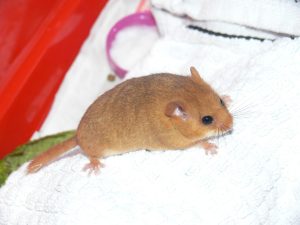 With summer only around the corner, and the popularity of eco-tourism on the rise, many of us will be looking at to consolidate our love of nature with our annual holiday this year.
With summer only around the corner, and the popularity of eco-tourism on the rise, many of us will be looking at to consolidate our love of nature with our annual holiday this year.
With that in mind The International Union for the Conservation of Nature (IUCN) has released a set of top tips for eco-tourists who want to visit some of the worlds most spectacular locations.
The tips accompany the IUCN’s latest report on Sustainable tourism and natural World Heritage (c. 300kb PDF file).
From making sure you’re not inadvertently eating an endangered species, to choosing the right eco-hotel and keeping your carbon footprint under control, the tips offer practical advice on how you can enjoy the natural world’s highlights, without having a detrimental impact on them.
“From a development perspective, income from tourism may reduce poverty by creating jobs, which can in turn help with biodiversity conservation. Many conservation organizations are seeing the value of setting up small businesses that are based on or benefit the environment,” said Tim Badman, Director of the IUCN’s World Heritage Programme. “However, if tourism is badly planned and not managed responsibly, it can lead to biodiversity loss, ecosystem degradation and negative impacts to local communities.”
So without further ado here are the IUCN’s top ten eco-tourism tips:
1. Visit destinations which have conservation value, such as protected areas, World Heritage sites or areas where nature and culture is a key attraction. Include in your trip visits and activities related to conservation projects. Visit www.protectedplanet.net
Or take this a step further and plan a “doing” holiday! Many organizations plan expeditions where you can spend time working on a local conservation project.
2. Travel light: limit the packaging you bring with you. This will become waste in your holiday destination.
3. Before you travel, learn as much as possible about your destination, about the natural assets, the local people and their culture and any environmental concerns (for example if there is a drought, if forest fires are a major threat ..). This should help to make your journey more enjoyable!
4. Use reputable local tour operators, preferably those who contribute to conservation themselves. Aim to follow any local codes, for example regarding behaviour or dress if visiting cultural or sacred natural sites.
5. Pick nature-friendly accommodation: ask hotels if they are truly eco, for example do they have an environmental policy? Have they implemented energy and water saving measures? Do they contribute to local conservation efforts and support local communities?
6. If you can, try to get to your destination by train or coach – you’ll see more of the country you’re travelling in as well as reducing your carbon emissions. Consider also offsetting your travel using a Gold Standard supplier.
7. When you’re on holiday, choose wisely what you put on your plate. Choose locally sourced produce that’s in season and be aware that certain Endangered species may be on the menu without your knowledge – ask local conservation organizations for a list of what to look out for.
8. Many wild plants and animals are in great danger … you can contribute to protecting them by avoiding buying souvenirs made from Endangered species (jewellery made from red coral and turtle carapace,shatoosh and many others). Be careful if you’re bringing plants or seeds back from your travels – check that they couldn’t become invasive species.
9. Wildlife watching can be an incredible experience… but don’t disturb wildlife, for your own safety and theirs!
10. Maintain a relationship with your new friends in the destination, become a member of local conservation organizations.
If you’re heading out of Ireland for one of the world’s nature hotspots this summer, keep these tips in mind… and don’t forget to let us know where you’re going, and share some of your experiences over on the Ireland’s Wildlife page on Facebook.








